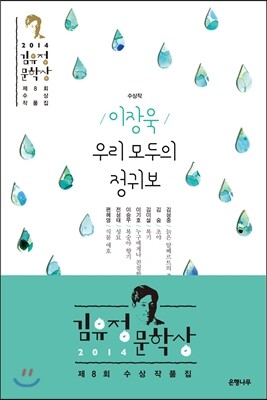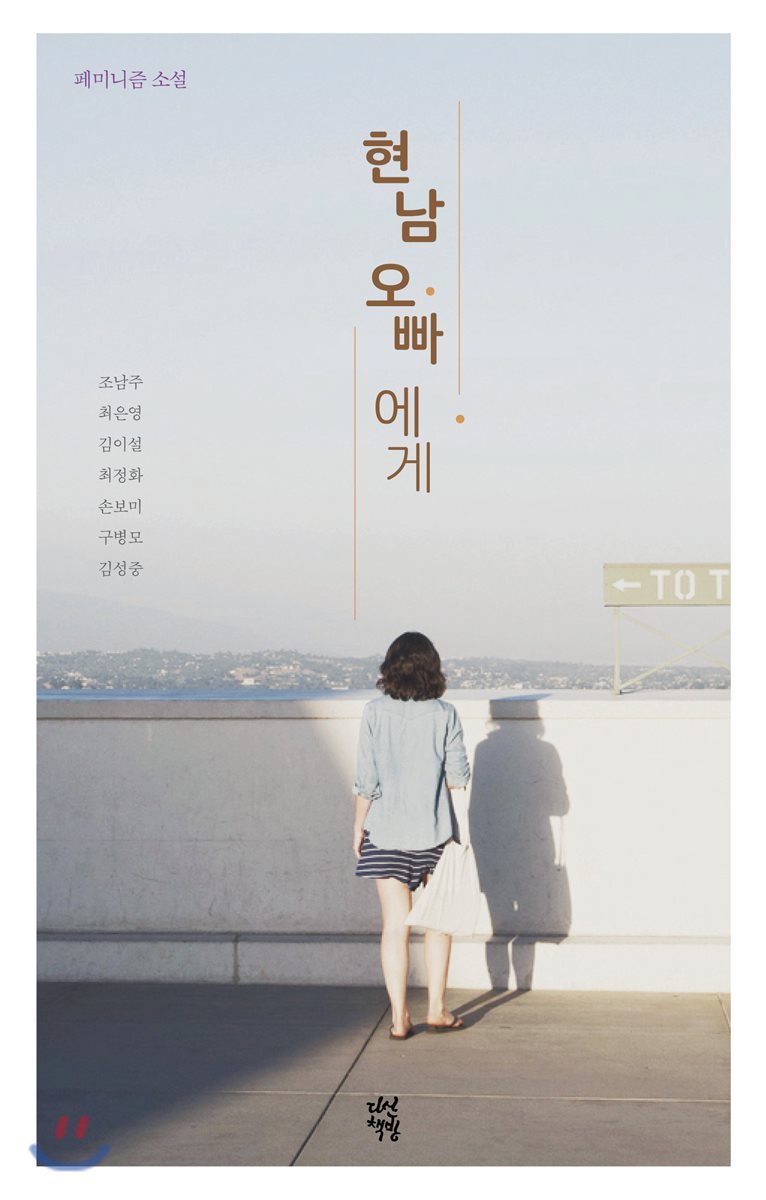1. 도입부
김이설(1975)은 대한민국의 작가이다. 1975년 충청남도 예산에서 태어났다. 2006년 서울신문 신춘문예에 단편 「열세 살」이 당선되어 등단했다. 경장편소설 『나쁜 피』, 『환영,』, 『선화』, 소설집 『아무도 말하지 않는 것들』을 냈다. 2012년 제1회 황순원신진문학상, 제3회 젊은 작가상을 수상했다.
2. 생애
김이설의 소설에는 출산과 육아 등 엄마와 아이 사이의 관계와 관련된 이야기가 많이 등장한다. 김이설은 출산의 경험이 없었다면 그렇게 쓰지 못했을 거라고 말한다. 그녀는 아이라는 존재가 얼마나 약하고 불안한지, 그 관계가 깨지면 얼마나 안 되는지를 임신과 출산을 통해 경험했다고 한다. 출산과 육아의 경험은 소설 쓰기에 대한 생각에도 영향을 미쳤다. 완결해야 하는 상황에 대한 강박관념이나 의무감을 깨우쳐주었기 때문이다. 장편 『나쁜 피』를 쓸 때는 출산 후 3일 만에 작업을 시작하기도 했다.
3. 작품세계
김이설의 소설은 삶의 밑바닥에 자리한 폭력을 그려 보여줌으로써 그로부터 한 발 떨어진 채 지켜온 우리의 평온한 일상이 얼마나 기만적인지를 묻는다. 특히 여성의 성과 육체에 직접적으로 가해지는 폭력의 경험을 구체적으로 폭로하며, 폭력의 피해자가 가해자가 되었다가 다시 피해자가 되는 폭력의 순환성을 밝힘으로써 폭력이 세계 구성의 중요한 원리임을 은연중에 밝힌다. 『환영』은 가족을 위해 자신의 노동력과 성을 모두 팔아야 하는 여성의 전락과정을 통해 자본주의적 교환경제 시스템과 가부장제적 지배질서가 여성을 어떻게 섹스로 환원하는지, 그리고 그런 여성 육체의 매춘화를 어떻게 지속적으로 뒷받침해왔는지를 보여준다.
김이설의 소설에서 여성의 육체에 가해지는 폭력은 한국사회의 최하위 계급에 속하는 여성 인물들을 통해 그려진다. 여성 노숙인, 대리모, 유기된 소녀, 자궁암 환자, 여성 지적 장애인, 성매매 여성 등 상상할 수 있는 가장 나쁜 종류의 위험에 처해 있고, 또 처해질 것이라 여겨지는 여성들이 김이설 소설의 주인공들이다. 이러한 인물들에게 가해지는 폭력을 보여줌으로써 김이설의 소설은 IMF 이후 진행된 ‘여성의 빈곤화’가 지금 얼마나 심각한 지점에 이르렀는지를 보여준다.
김이설의 소설은 현실의 가장 어두운 면을 보여준다. 특히 가족을 바라보는 김이설의 시선은 냉혹하다. 김이설은 혈연으로 맺어진 관계가 서로를 옭아매는 것 외에 서로에게 어떤 의미도 되어주지 못한다고 여기는 것 같다. 「부고」의 주인공은 부모의 이혼-성폭행-친모의 죽음-애인과의 이별-중절 수술 등 끊임없이 바닥으로 휘몰아치는 상황을 겪는데, 그런 그녀를 위안해주는 사람은 아빠도 오빠도 아닌, 자신과 비슷한 상처를 지닌 의붓엄마다. 「한파 특보」에 등장하는 주인공의 아버지는 가족을 위해 평생을 헌신해 왔다는 자부심 하나로 폭언을 일삼는다. 그런 아버지를 피해 주인공은 동료들과 함께 시답잖은 농담을 할 때나 잠깐씩 웃을 수 있다. 우리가 위안을 얻을 수 있는 대상이 가족 아닌 타인이라는 엄정한 진단이다. 하지만 이를 통해 폭력이 휩쓸고 난 이후 우리가 어디로 나아가야 할지 그 방향을 모색해보게 한다는 점에서 역설적인 희망을 가져다 주기도 한다.
4. 주요 작품
1. 오늘처럼 고요히(2016)
2. 선화 (2014)
3. 환영(2011)
4. 아무도 말하지 않는 것들(2010)
5. 나쁜 피(2009)
5. 수상 내역
1. 황순원문학상 신진문학상, 2012
2. 문학동네 젊은작가상, 2012
6. 주석
창비 홈페이지, 2017.5.12.에 확인
http://www.changbi.com/authors/2202?board_id=24
Kim Yi-seol
- Intro
Kim Yi-seol (born 1975) is a South Korean writer. She was born in 1975 in Yesan, Chungcheongnamdo. She began her literary career when her short story “Yeolse sal” (열세 살 Thirteen) won the Seoul Shinmun New Writer’s Contest in 2006. She has written novellas Nappeun pi (나쁜 피 Bad Blood), Hwanyeong (환영 The Spector), and Seonhwa (선화). She published a short story collection, Amudo malhaji anneun geotdeul (아무도 말하지 않는 것들 Things No One Says). In 2012 she won the 1st Hwang Sun-won Literary Award for New Literature, and the 3rd Munhakdongne Young Writer’s Award.
- Life
Kim Yi-seol’s works feature a lot of stories that have to do with the relationship between the mother and the child, such as childbirth and childcare. Kim Yi-seol has said that she wouldn’t be able to write such stories if she hadn’t had the experience of childbirth. She has expressed that through pregnancy and giving birth, she has experienced how children are weak and insecure, and how their bonds with their mothers should not be broken. Her experiences of childbirth and childcare has also affected her thoughts on writing fiction. It made her realize the anxiety for completing the draft as well as a sense of duty. When she was writing Nappeun pi (나쁜 피 Bad Blood), she had started writing only 3 days after her childbirth.
- Writing
Kim Yi-seol’s works depict the violence of the lives of the lowest members of society, questioning our own deception of a peaceful life that we have kept while keeping ourselves away from such violence. Particularly, she descriptively shows the experience of violence that is done to a woman’s sex and body, displaying violence’s cycle of how a victim of violence becomes the perpetrator, and then becomes the victim again. By doing this, she subtlety implies that violence is an important factor in the structure of society.Hwanyeong (환영 The Spector) depicts the process of how a woman turns to selling all her labor as well as her sex for family, through which the author shows how the capitalistic system of value exchange and the patriarchy have reduced women to sex, and how they have consistently supported the commercialization of women’s bodies.
In Kim Yi-seol’s stories, the violence that is done to women’s bodies is depicted through women who belong to the lowest level of society in Korea. The protagonists of Kim Yi-seol’s stories are those who are exposed to the worst imaginable risks, and will be exposed to those risks, such as afemale homeless person, a surrogate mother, an abandoned girl, a uterine cancer patient, a mentally handicapped woman, and a prostitute.By showing the violence that is being done on such people, Kim Yi-seol’s stories depict how bad the ‘impoverishment of women’ has become since its progress after the IMF.
Kim Yi-seol’s stories show the darkest sides of reality. Particularly, her views on family is very harsh. Kim Yi-seol seems to consider that a blood relation does nothing but imprisoning each other, and is mutually meaningless outside of that. In “Bugo” (부고 The Obituary), the protagonist experiences a downward spiral situation, in which she constantly falls through: divorced parents, rape, death of her mother, parting from a lover, and abortion. The one who consoles is neither her father nor her big brother, but her stepmother, who has similar scars. In “Hanpa Tteukbo” (한파 특보 A Cold Wave Warning), the protagonist’s father constantly throws out verbal abuse for the sole reason of his pride for having worked for the family all his life. The protagonist can smile from time to time only when avoiding the father and cracking jokes with coworkers. This is a strict diagnosis that those we can receive consolation from are not our family, but others. However, it also paradoxically gives hope, in that it allows us to search for which direction we should go towards after violence has passed.
- Works
Oneulcheoreom goyohi (오늘처럼 고요히 Quiet Like Today), 2016.
Seonhwa (선화), 2014.
Hwanyeong (환영 The Spector), 2011.
Amudo malhaji anneun geotdeul (아무도 말하지 않는 것들 Things No One Says), 2010.
Nappeun pi (나쁜 피 Bad Blood), 2009.
- Awards
Hwang Sun-won Literary Award for New Literature, 2012.
Munhakdongne Young Writer’s Award, 2012.




